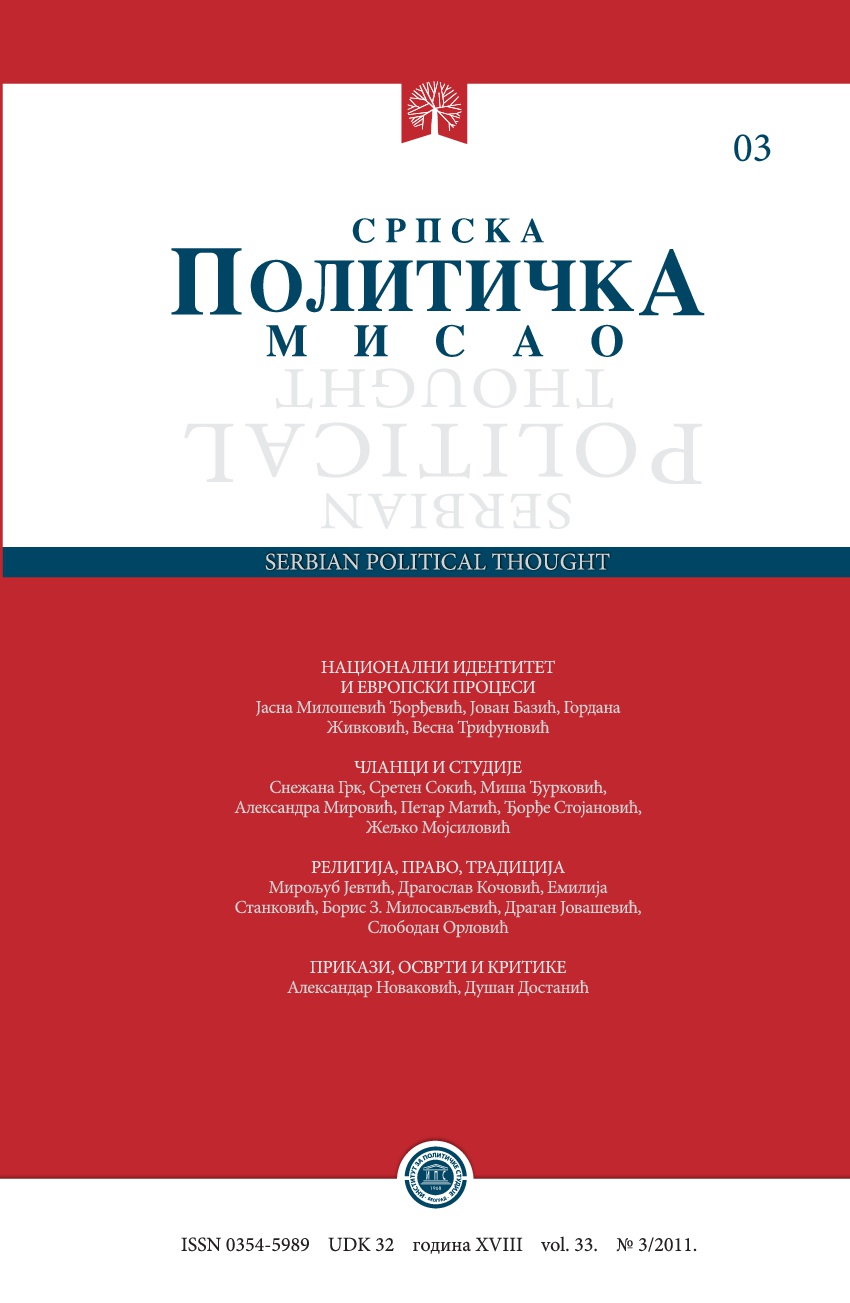Развој и јачање демократских капацитета у Србији путем примене праксе грађанске непослушности
Developing and Strengthening Democratic Capacities in Serbia by Using the Practice of Civil Disobedience
Author(s): Aleksandra MirovićSubject(s): Education, Civil Society, Government/Political systems, Methodology and research technology, Transformation Period (1990 - 2010)
Published by: Институт за политичке студије
Keywords: Democratic capacities; Serbia; the 5th October events; regime change; civil disobedience; potential of civil society; civic political culture; democratization; democratic education; civil and politica
Summary/Abstract: In the article the author analyzes the events from 5th October 2000 in Serbia, their outcome and their various characterizations. It shows that frequent designation of the events as a revolution or an over turn, even as a putsch, is very disputable. Applying the method of analytical testing some important characteristics of these categories on the considered case of Serbia, aims not only to show that it can not find here, and that it is wrong to use the terms, but to mark and set aside essential elements of what is really in this example implemented as a means of political struggle. Exactly, this is an evolutionary strategy of mass civil disobedience. Namely, the force has been a key factor influencing the direction of events, and acting on the very outcome, but it was a potential and latent power reflected in the mass of active citizenship and his expressed readiness to fight, if would be need, with all means for recognition of his electoral will. However, as the scenario of providing active, i.e. right (armed) resistance to the regime was not realized, the protests that took place 5th October has remained at the level of civic struggles for the protection of the existing constitutional order, which was being endangered by then authority itself (so- called the usurpation of legality) in its manner of governance. And this is precisely the key moment which suggests that, despite quasi-democratic conditions, i.e. the lack of that rigid institutional condition stricto sensu, which the dominant Rawlsian conception set as a necessary framework for this kind of practice, the protest actions of the Serbian citizens can still be treated as an acts of civil disobedience. Systemic- institutional context is certainly framework of actors’ behavior. But the social and political activities of citizens are affected by social norms too. In Serbia’s case, just the civil norms of a new political culture emerging have secured the necessary contextual framework for the implementation of the civil disobedience practice. The main conclusion is that the analyzed case of Serbia, as an example of successful implementation of civil disobedience for the democratization of political power, shows how much can be great social capital and strong political forces made by associated disobedient citizens, i.e. how much citizenship’s activity can contribute to both, developing and strengthening the democratic capacity of one society and its political institutions. Therefore, special attention is devoted to analyzing the present state of civil society in Serbia, its unused social and political potentials, and tendencies of marginalization and irresponsible disqualification of civil disobedience practice.
Journal: Српска политичка мисао
- Issue Year: 2011
- Issue No: 3
- Page Range: 177-203
- Page Count: 27
- Language: Serbian

